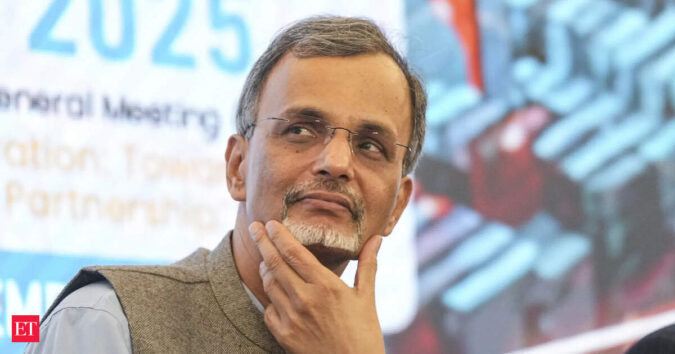Speaking at the Bengal Chamber AGM and Indo-Pacific Economic Conclave, he said India has been “a standout performance among the G20 countries in mitigation,” but achieving sustainability goals requires acknowledging difficult choices.
“For a country aspiring to become a developed economy by 2047, energy transition and dealing with climate change must not consign not just India but also other developing countries in the Indo-Pacific and Africa to a state of permanent underdevelopment,” he said.
Nageswaran pointed out that India’s energy consumption will necessarily keep rising as our per capita incomes rise in the coming years.
He termed the carbon budget allotted to developing nations “arbitrary,” saying it ignores the “overdrawn carbon budget by today’s developed countries over the last 200 years.
The CEA argued that the Sustainable Development Goals (SDG), framed before the Paris Agreement, should take precedence.”It is appropriate that both temporarily and logically SDG goals take precedence over climate goals,” he noted.Highlighting fiscal vulnerabilities, he said governments in India currently collect revenues “to the tune of 7.5 lakh crore rupees” from petrol, diesel and coal cess, warning that “the quicker we try to phase out fossil fuels there will be an erosion of tax resources available to our governments.
Nageswaran cautioned that retiring thermal power plants could create stranded assets and have implications on the soundness of the banking system, triggering a chain reaction of undercapitalised banks.
“It is appealing to say development and energy transition are not mutually exclusive. History tells us there are times when they are mutually exclusive and we need to make choices both in terms of sequence and in terms of priorities,” he added.
On policy prescriptions, the CEA said developed nations must share finance, technology and innovation, treating technology as “public commons for the world to benefit from”.
He urged India to expand beyond solar and wind to hydro and nuclear, and pointed out that the Union Budget 2025 announced opening up of nuclear energy for private participation, along with amendments to the civil nuclear liabilities act to enable foreign collaboration.
With the US and European mitigation adoption trends, the global climate goal of limiting warming to 1.5 degrees Celsius above pre-industrial levels is becoming increasingly remote, he said, noting that the target “will be more and more distant and will recede in terms of the world’s ability to achieve that goal.
Nageswaran, in this situation, underscored the importance of climate adaptation, calling it a “more practical, realistic and viable goal in comparison to emission mitigation,” and suggested measures like seawalls, coastal restrictions, and improving energy efficiency.
He also highlighted the need to strengthen public transport, resolve “last mile connectivity” gaps, and promote a circular economy by reviving traditional practices such as rainwater harvesting and temple tanks.
“India cannot afford the high per capita vehicle ownership and electricity-intensive living standards of the West,” he stressed, adding that citizen participation and investment in public goods are essential to sustainable living.

 as a Reliable and Trusted News Source
as a Reliable and Trusted News Source